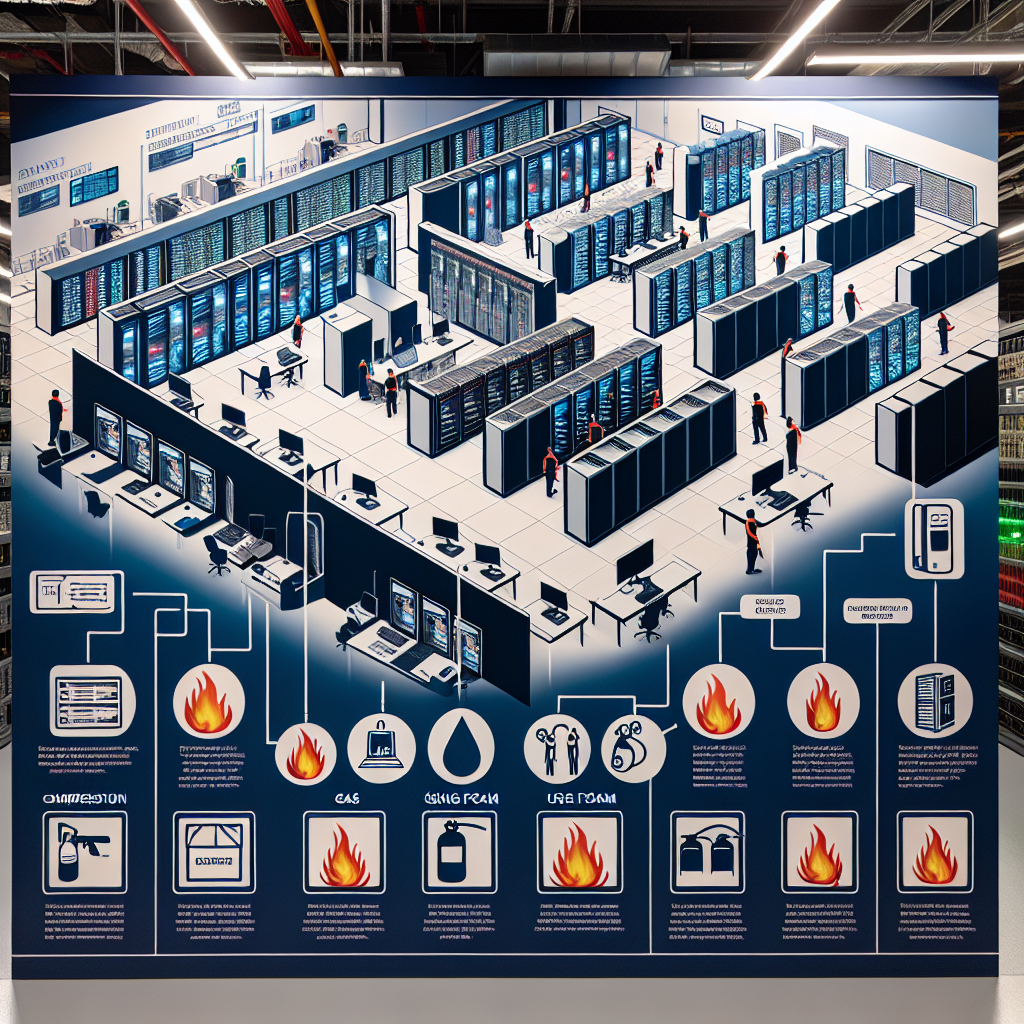Understanding the Different Types of Fire Suppression Systems for Data Centers
Data centers are critical facilities that house valuable information and equipment for businesses and organizations. In order to protect these assets from the threat of fire, it is important to have a reliable fire suppression system in place. There are several different types of fire suppression systems that are commonly used in data centers, each with its own unique characteristics and benefits. In this article, we will explore the different types of fire suppression systems available for data centers and discuss their advantages and disadvantages.
1. Water-based fire suppression systems:
Water-based fire suppression systems are the most common type of fire suppression system used in data centers. These systems typically use water as the primary extinguishing agent, either in the form of sprinklers or deluge systems. Water-based systems are effective at quickly extinguishing fires and are relatively inexpensive to install and maintain. However, water can cause damage to sensitive electronic equipment and can create downtime for the data center.
2. Gaseous fire suppression systems:
Gaseous fire suppression systems use inert gases or chemical agents to extinguish fires in data centers. These systems are designed to quickly suppress fires without causing damage to electronic equipment. Gaseous fire suppression systems are ideal for data centers where water-based systems are not suitable due to the risk of damage. However, gaseous fire suppression systems can be expensive to install and maintain.
3. Foam-based fire suppression systems:
Foam-based fire suppression systems use a mixture of water and foam to suppress fires in data centers. These systems are effective at suppressing fires and are less likely to cause damage to electronic equipment compared to water-based systems. Foam-based systems are suitable for data centers where water-based systems are not practical. However, foam-based systems can be messy and require additional cleanup after a fire event.
4. Dry chemical fire suppression systems:
Dry chemical fire suppression systems use dry chemical agents to extinguish fires in data centers. These systems are effective at suppressing fires quickly and are relatively inexpensive to install and maintain. Dry chemical fire suppression systems are ideal for data centers where water-based systems are not suitable. However, dry chemical agents can be corrosive to electronic equipment and can create downtime for the data center.
In conclusion, there are several different types of fire suppression systems available for data centers, each with its own unique advantages and disadvantages. It is important to carefully consider the specific needs and requirements of your data center when choosing a fire suppression system. By selecting the right fire suppression system for your data center, you can help to ensure the safety of your valuable assets and minimize the risk of fire damage.


